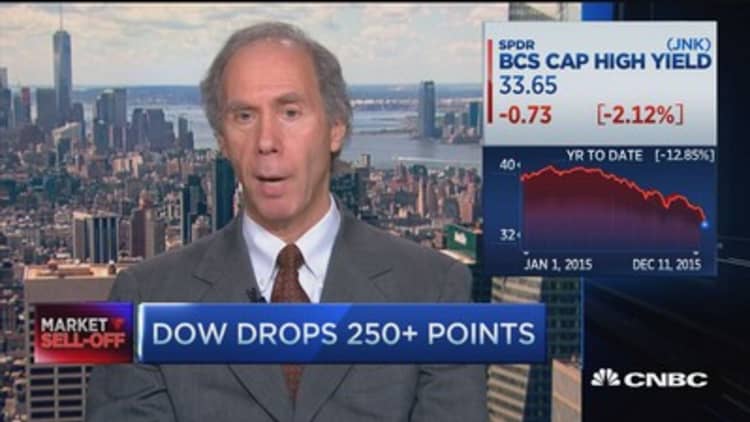
What started as a tweet from activist investor Carl Icahn, opining on the high-yields market on Friday, culminated as a phone call to CNBC's "Fast Money: Halftime Report."
The tweet, which warned of an impending "meltdown" in the high-yields market, came as Third Avenue Focused Credit announced a freeze on investor withdrawals while it liquidate its high-yield bonds.
Icahn, who has previously spoken about the risks of junk bonds, likened this market to "a keg of dynamite that sooner or later will blow up" during a phone interview with CNBC.
While Icahn considers junk bond funds illiquid, others believe that the Third Avenue Focused Credit's case is an isolated one.
"This is extremely unusual and really should not be taken as indicative of what's going to happen with other funds," Martin Fridson, chief investment officer at Lehmann, Livian, Fridson Advisors, told CNBC's "Power Lunch" on Friday.
"You're not going to see big escalation in default rates anytime soon, based on anything that we can see now, so you're not looking at being on the verge of 2008," he added.
Fridson also noted that there are no signs that the U.S. is currently going into a recession.
"Recessions have been preceded by ... two-year yields being higher than the 10-year treasury yields, we're not anywhere close to that."
Defaults are currently well below average, as Moody's long-run average estimate is 4.6 percent, and yields are at a 2.9 percent over the last year. Moody's, however, is projecting default rates to rise to 3.7 over the next 12 months.
The expert noted that although default rates are below Moody's long-run average levels, he estimates default rates rising to 6 percent by 2017.
Meanwhile, in efforts to enhance regulations that limited the use of derivatives, The Federal Reserve released a rule proposal that limits funds' use of derivatives and force companies to implement risk management measures.
This proposal, released on Friday, includes registered investment companies, ETFs and business investment companies.
"High-yield bonds touched their 52-week low on Friday."



